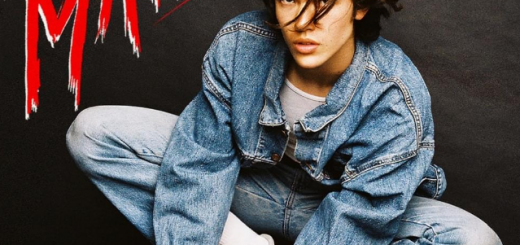Family Line by Conan Gray Lyrics Meaning – Unraveling Generational Echoes in Melody
Lyrics
He just took a walk around the block
‘Til all his anger took a hold of him
And then he’d hit
My mother never cried a lot
She took the punches, but she never fought
‘Til she said, “I’m leavin’ and I’ll take the kids”
So she did
I say they’re just the ones who gave me life
But I truly am my parents’ child
Scattered ‘cross my family line
I’m so good at telling lies
That came from my mother’s side
Told a million to survive
Scattered ‘cross my family line
God, I have my father’s eyes
But my sister’s when I cry
I can run, but I can’t hide
From my family line
It’s hard to put it into words
How the holidays will always hurt
I watch the fathers with their little girls
And wonder what I did to deserve this
How could you hurt a little kid?
I can’t forget, I can’t forgive you
‘Cause now I’m scared that everyone I love will leave me
Scattered ‘cross my family line
I’m so good at telling lies
That came from my mother’s side
Told a million to survive
Scattered ‘cross my family line
God, I have my father’s eyes
But my sister’s when I cry
I can run, but I can’t hide
From my family line
From my family line
Oh
All that I did to try to undo it
All of my pain and all your excuses
I was a kid, but I wasn’t clueless
(Someone who loves you wouldn’t do this)
All of my past, I tried to erase it
But now I see, would I even change it?
Might share a face and share a last name but
(We are not the same)
Scattered ‘cross my family line
I’m so good at telling lies
That came from my mother’s side
Told a million to survive
Scattered ‘cross my family line
God, I have my father’s eyes
But my sister’s when I cry
I can run, but I can’t hide
From my family line
From my family line, mm
In a whispery catharsis of melody and vulnerability, Conan Gray’s ‘Family Line’ unfolds a tapestry of generational scars and inadvertent inheritances. The song is a poignant narrative painted with the stark hues of childhood recollections and the existentialist understanding of the self that emerges from familial experiences.
At the intersection of introspection and melodic poetry, this track becomes a confessional booth for the soul, echoing the longstanding question of how our origins shape us. It doesn’t just scrape the surface of a troubled past, but deeply navigates the rivers of trauma that flow from one generation to the next, questioning inevitability, responsibility, and the potential for change.
The Echoes of Silenced Struggles
It begins with quietness, the unspoken grievances of a father ‘who never talked a lot’ and a mother ‘who never cried a lot.’ These are the initial strokes in Gray’s portrait of a home where suppressed emotions fester into physical expressions of ‘anger’ and ‘punches.’ The subtlety with which Gray introduces us to his domestic sphere highlights the normative aspect of such toxic cycles, often cloaked in silence.
The song retraces the emotional lineage of the artist, illustrating the silent battles fought behind closed doors, and the impact they have on those involved. Gray uses the absence of communication as a powerful indicator of brewing turmoil, effectively trapping his audience in the same cycle of tension that he delineated.
Generational Legacy: The Weights We Carry
At the heart of ‘Family Line’ is the inescapable weight of inheritance. The ‘scattered’ nature of these character traits and habits, ‘across my family line,’ implies a fragmentation within the self – pieces picked up from ancestors, both virtuous and flawed. Gray identifies with both his parents, asserting that despite his resistance, he is indelibly ‘my parents’ child.’
This acknowledgment of inherited traits doesn’t come with resentment but rather a sullen resignation. Gray is intuitively adept at ‘telling lies,’ reflecting his mother’s defense mechanism, and his eyes – ‘God, I have my father’s eyes’ – serve as windows to a soul that has seen too much too soon, and a body that can’t elude its genetic script.
The Hidden Meaning – Breaking Free From The Shadows
Beneath the clear narrative of family dysfunction is a subtle layer of reconciliation. When Gray reflects, ‘I can run, but I can’t hide from my family line,’ there is an inkling that the true journey is not to escape but to understand and confront his lineage. It is a declaration that to move forward, one must face the past with open eyes.
This is not about disowning his roots but rather disentangling himself from the adverse aspects that hinder his self-growth. The song then becomes a roadmap of self-liberation, a beacon for those navigating similar terrains of inherited trauma, suggesting that knowledge and acceptance are the first steps towards healing.
A Chorus of Emotions – Memorable Lines That Haunt
Few lines cut as sharply into the fabric of this song as ‘I watched the fathers with their little girls / And wonder what I did to deserve this / How could you hurt a little kid?’ Here, Gray touches on the inherent innocence of childhood, the bewilderment in the face of the inexplicable cruelty, and the lasting sting of undeserved pain.
Similarly, ‘Someone who loves you wouldn’t do this’ unravels the fundamental betrayal inherent in Gray’s experience – the paradox of being hurt by those meant to nurture and protect him. These pungent, lyrical moments crystallize the universal dilemma of reconciling love with hurt, uneasily residing within many family dynamics.
The Cathartic Crescendo – Acceptance and Identity
As ‘Family Line’ builds, it reaches an emotional crescendo, a catharsis that comes from facing the demons of the past head-on. ‘All that I did to try to undo it / All of my pain and all your excuses / I was a kid, but I wasn’t clueless,’ these lines are Gray’s emphatic rejection of the excuses that often shield abusive patterns from scrutiny.
In the end, the song’s bridge ‘But now I see, would I even change it? Might share a face and share a last name but / (We are not the same),’ offers an ultimate moment of triumph. Through embracing his history and choosing which parts to carry forward, Gray asserts his autonomy over his narrative and identity, pulling away from deterministic views of familial inheritance.








